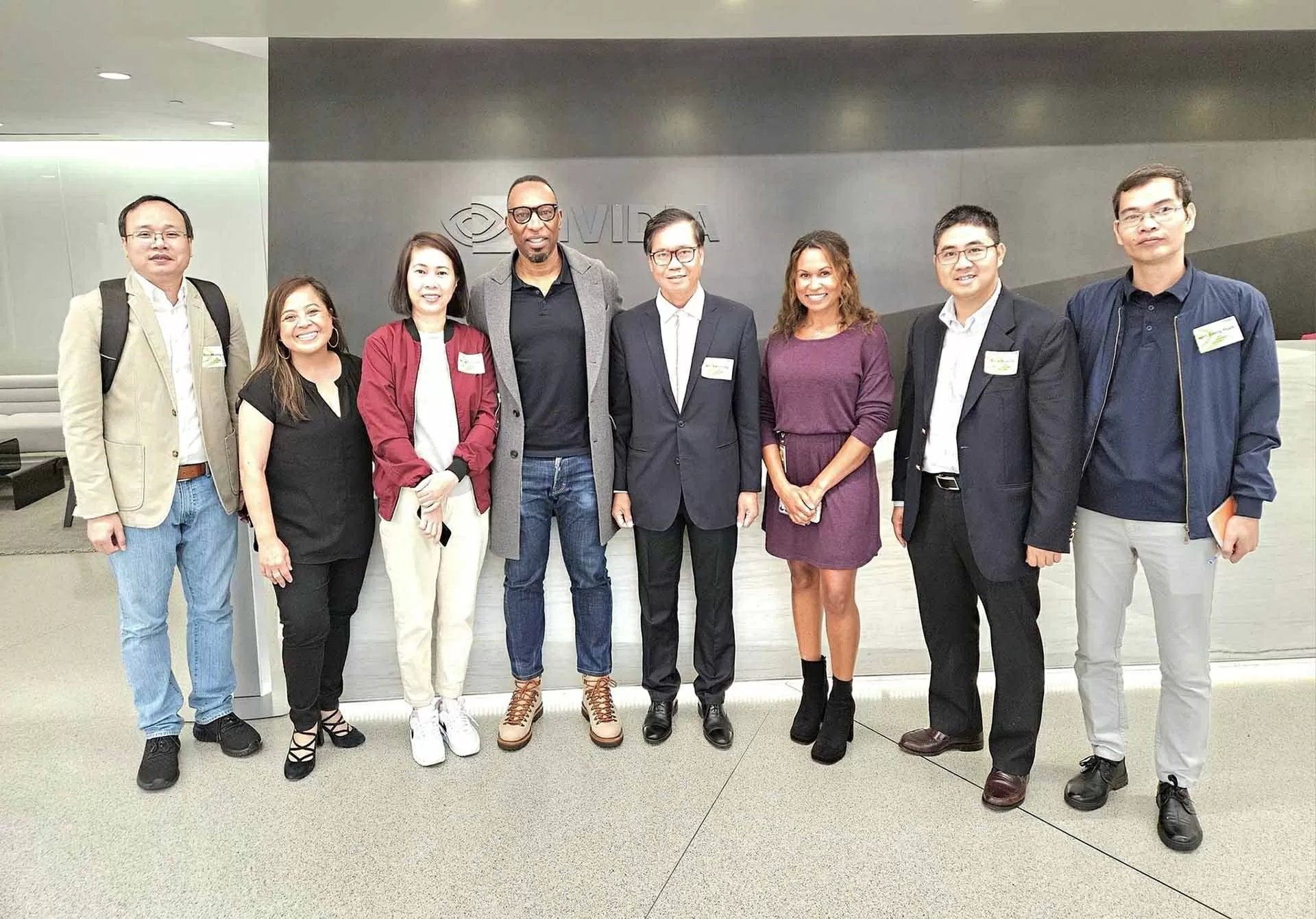 |
| Vietnamese Consul General in San Francisco, Ambassador Hoang Anh Tuan during a visit to NVIDIA headquarters. (Photo: NVCC) |
What does the Ambassador think about the prospects for economic cooperation between Vietnam and the United States, especially after the two countries upgraded their relationship to a Comprehensive Strategic Partnership and formed new cooperation trends in technology, artificial intelligence (AI), semiconductors, etc.?
The prospects for economic cooperation between Vietnam and the United States are rapidly expanding into high-value-added sectors such as technology, AI, semiconductors, clean energy and innovation. In this context, cooperation in research and development (R&D) is emerging as a strategic direction.
As the Consul General of Vietnam in San Francisco, the heart of Silicon Valley – I have the opportunity to directly interact with the world’s leading technology corporations. We have worked hard to bring US technology companies to Vietnam, and so far there have been very concrete results.
Notably, NVIDIA has decided to establish the Vietnam Artificial Intelligence Research and Development Center (VRDC), becoming one of the three global centers of the Group alongside the United States and Taiwan (China). This is not only a step forward in bilateral cooperation, but also a testament to Vietnam's increasingly elevated position in the global technology value chain.
In addition, leading technology corporations such as Intel, Meta, Apple, and Amazon are actively seeking opportunities for investment cooperation, data sharing, human resource development, and innovation ecosystem expansion. As Vietnam takes the digital economy as the foundation for development and the United States is the global technology center, the two countries have full conditions to complement and promote each other in the journey of sustainable and inclusive development.
For bilateral economic cooperation to develop sustainably and become ideal destinations for each other, what are the key words we need to master? I believe there are five key words for bilateral economic cooperation to develop sustainably, in balance and become ideal destinations for each other.
The first keyword is “trust”. Political , institutional, and strategic trust is the foundation for any long-term cooperative relationship. The Vietnam-US relationship has gone through 30 years of normalization and was recently upgraded to a Comprehensive Strategic Partnership, reflecting the increasing level of trust between the two countries. The more trust, the more daring to think, to do, and to invest.
The second keyword is “win-win”. Cooperation must be based on harmonious benefits and shared risks. Vietnam does not expect unilateral support, but wants to become a reliable partner where US businesses can invest long-term and earn fair profits, while Vietnam can also develop sustainably and upgrade its domestic value chain.
The third keyword is “innovation”. This is not only a new growth driver but also a priority area of cooperation, especially in high-tech industries such as AI, semiconductors, open data, healthcare, clean energy, and smart agriculture. To make a breakthrough, Vietnam cannot rely solely on the processing industry, but needs to move forward in R&D and intellectual property.
The fourth keyword is “human resources”. There will be no AI without Vietnamese people good at AI. There will be no semiconductor industry without microchip engineers. To become a technology destination, Vietnam needs to be a starting point for talent. And the United States can accompany this training process.
Finally, there is the “open institution” – a clear, flexible legal framework that encourages investment, protects intellectual property rights, and creates a testing environment (sandbox) for new technology. The Vietnamese government is moving in that direction.
Besides your role as Consul General, you are also known as the “Technology Ambassador”. Could you share your vision and aspirations to become a bridge to promote technology cooperation between Vietnam and the United States?
I see the title “Technology Ambassador” not only as an encouragement, but also as a personal commitment to making technology a strategic bridge between Vietnam and the United States. As the two countries upgrade their relationship to a Comprehensive Strategic Partnership, technology – particularly AI, semiconductor technology, big data and innovation – has emerged as a strategic pillar of cooperation.
As the head of the Vietnamese diplomatic mission in San Francisco – the “heart” of Silicon Valley, from the very first day of my assignment, I set a goal of turning this favorable geographical location into a “technology lever” to help Vietnam access, learn and gradually master core technologies.
Bringing NVIDIA to invest in Vietnam and jointly deploying the AI Research and Development Center is a concrete milestone. I am working with partners to promote the next steps in the field of high-performance computing, AI-semiconductor human resource training and sharing big data infrastructure.
I am also expanding my network of collaborations with corporations like Intel, Meta, Google, and many technology startups and academics in San Francisco.
My dream is to establish a “Vietnam – US Technology Innovation Network” – a place that brings together Vietnamese experts, US technology investors, research institutes and businesses to contribute to the national technology strategy.
I believe that for Vietnam to become not only a technology consumer but also a co-innovation partner, technology diplomacy must go one step further. And I voluntarily undertake that mission with all my enthusiasm and responsibility.
On the other hand, how do you view the efforts of Vietnamese enterprises to penetrate the US market? What recommendations do you have for other enterprises to confidently expand their presence in this potential but also competitive market?
I believe that the US market, especially the West Coast with the San Francisco Innovation Center and Silicon Valley, is not only a place to consume products but also a learning environment, helping Vietnamese businesses mature in technology thinking, management and global integration.
From an on-the-ground perspective, I see more and more Vietnamese technology enterprises starting to have a presence in the United States, accessing the innovation ecosystem and participating in the global value chain with their own strengths.
Some companies have established representative offices, market coordination centers, or technical support departments in California to serve US customers and strengthen connections with local partners. Others focus on providing software solutions, AI technology, big data, or computing infrastructure to partners in the fields of finance, healthcare, retail, and logistics. Many companies are also in the process of negotiating commercial cooperation, mergers and acquisitions, or technology transfers with corporations in the US to expand scale and increase product value.
These activities are not large in scale but represent an encouraging trend: Vietnamese technology enterprises are gradually leaving their “comfort zone” to try their hand in a market with high standards and fierce competition. To be successful, one cannot just sell products, but must also meet standards of quality, legality, intellectual property and technological ethics.
I would like to propose three recommendations: First, approach the US market with a solution mindset, not just as a supplier. Second, invest systematically in legal capacity, technology standards and intellectual property protection. Third, build a strategic support network with scholars, lawyers, the Vietnamese community and local partners for sustainable development.
Thank you very much, Ambassador!
Source: https://baoquocte.vn/ngoai-giao-cong-nghe-o-trai-tim-thung-lung-silicon-329751.html








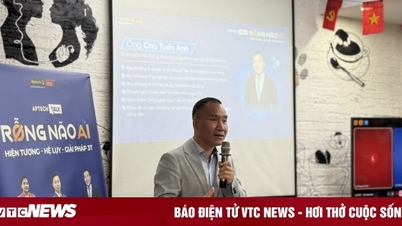

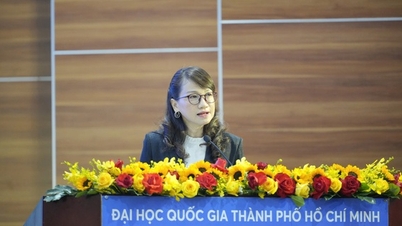



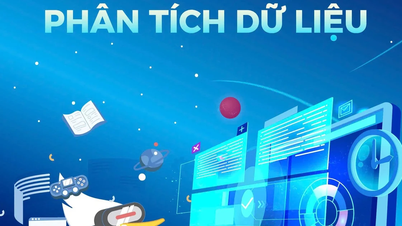



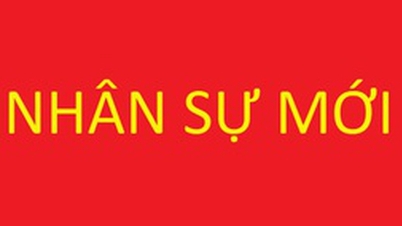

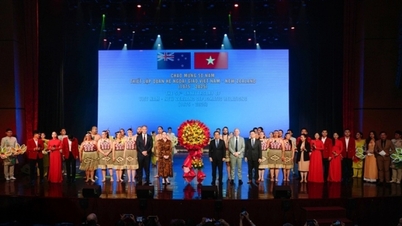
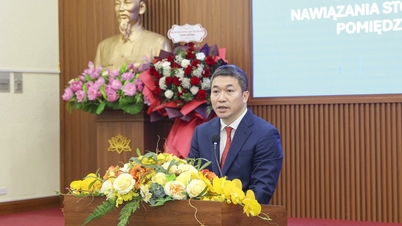

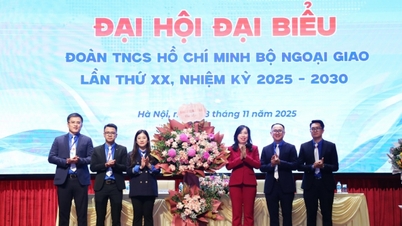
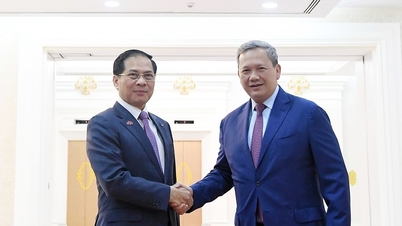
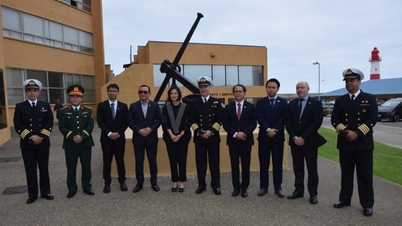





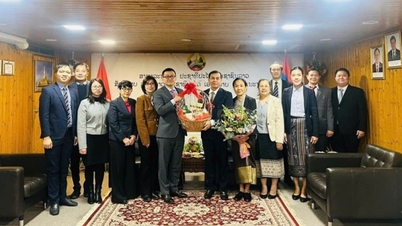
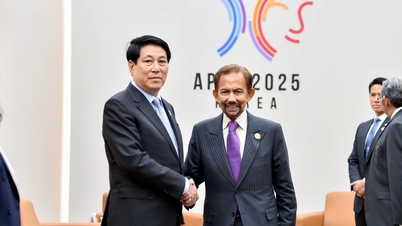

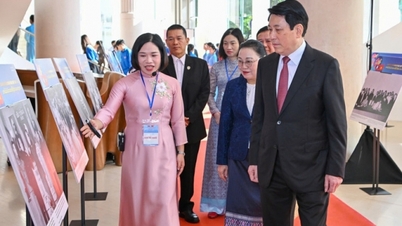
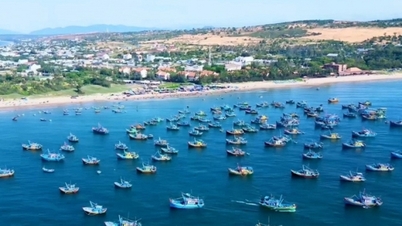



















































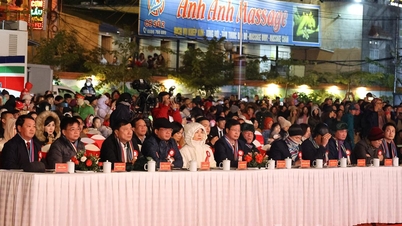


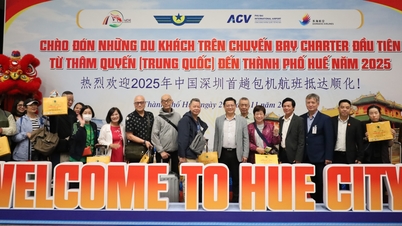



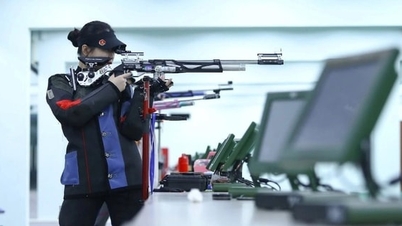

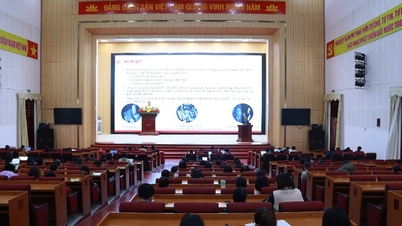











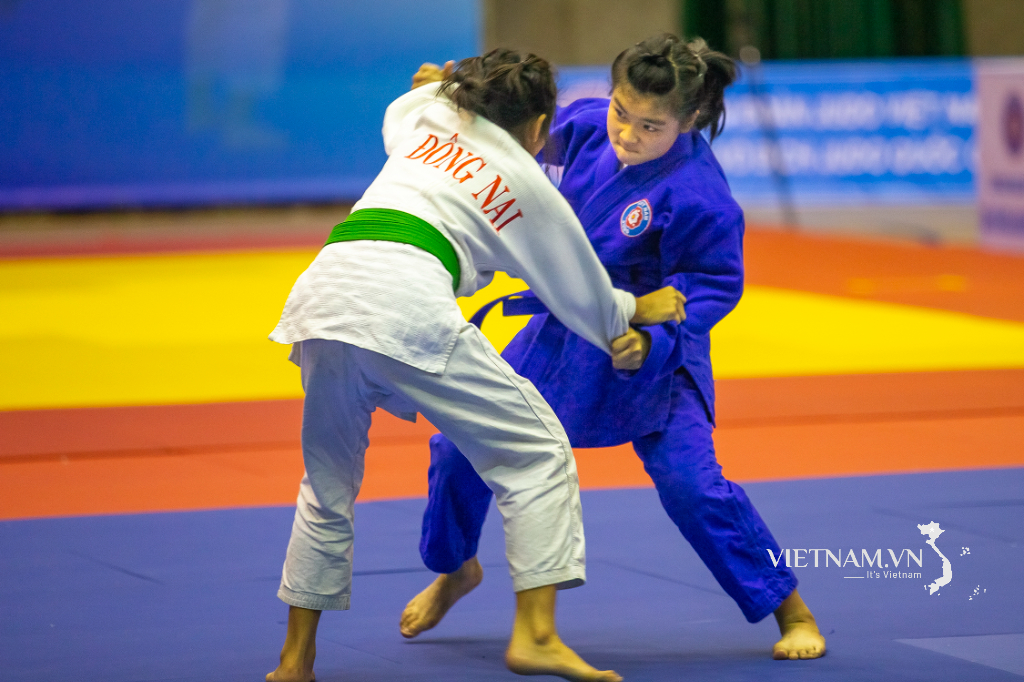
Comment (0)